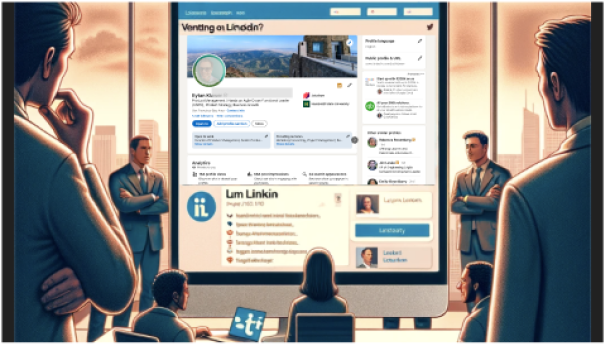I struggled a bit with posting this because I bristle at the notion of focusing on an outward veneer of success. But I see so many job seekers venting their frustrations on on Linkedin, and I fear that they don’t realize just how much damage they may be doing.
Linkedin is the definitive platform for professional networking, career development and job searching. As such, it is a dangerous place to express doubts, frustrations, and fears about your job search. While showing vulnerability can humanize your profile and potentially foster connections, it is crucial to understand the long-term implications of how you present yourself.
Venting about job search frustrations might feel cathartic and can even provide a temporary sense of relief or validation from your network. It’s natural to seek support during challenging times, and expressing your struggles often leads to words of encouragement from others. However, the professional setting of LinkedIn makes it the wrong place to seek this support. The content you share on LinkedIn contributes SO directly to your professional reputation/brand because it is the very thing that potential employers (recruiters and hiring managers) will use to evaluate your candidacy for a role.
When you vent on LinkedIn, you’re associating your most vulnerable moments with your professional brand. This public display of frustration can lead to unconscious biases among your connections and potential employers. Those who see these posts may, even subconsciously, start to link your professional profile with negativity, doubt, or instability, which are not traits employers look for in prospective employees.
Without getting too smarmy, it’s important to note how essential it is to own the narrative of your professional story. Linkedin, like other social networks, is a place where people curate their identities. People highlight their strengths, accomplishments, and professionalism, and as a job searcher, you should do the same. Consistent positive engagement and content that reflects your professional capabilities and ambitions build the strong brand you want. In contrast, posts filled with complaints or overt negativity, while edgy and authentic, end up undermining your professional image just when you need to be strong enough to do the work of representing you well in a crowded field of candidates.
When you feel the need to share your frustrations or seek advice, talk to a friend, spouse, mentor, close colleagues, or professional groups in private forums or through direct messages. These interactions allow you to express your feelings and concerns and receive support and advice without the broader implications of public posts.
LinkedIn can still be a platform for sharing challenges—when done constructively, highlighting the aspects of your professional self that employers value and colleagues admire, your willingness to face hard problems, regroup when necessary, grow your skills, and ultimately adapt to solve problems. The key is to consider how the message contributes to your professional brand. Don’t sabotage what you need most when job searching; the perception of positivity, resilience, stability, and a “can-do” attitude are the table stakes of getting a shot to be considered for your desired role.




